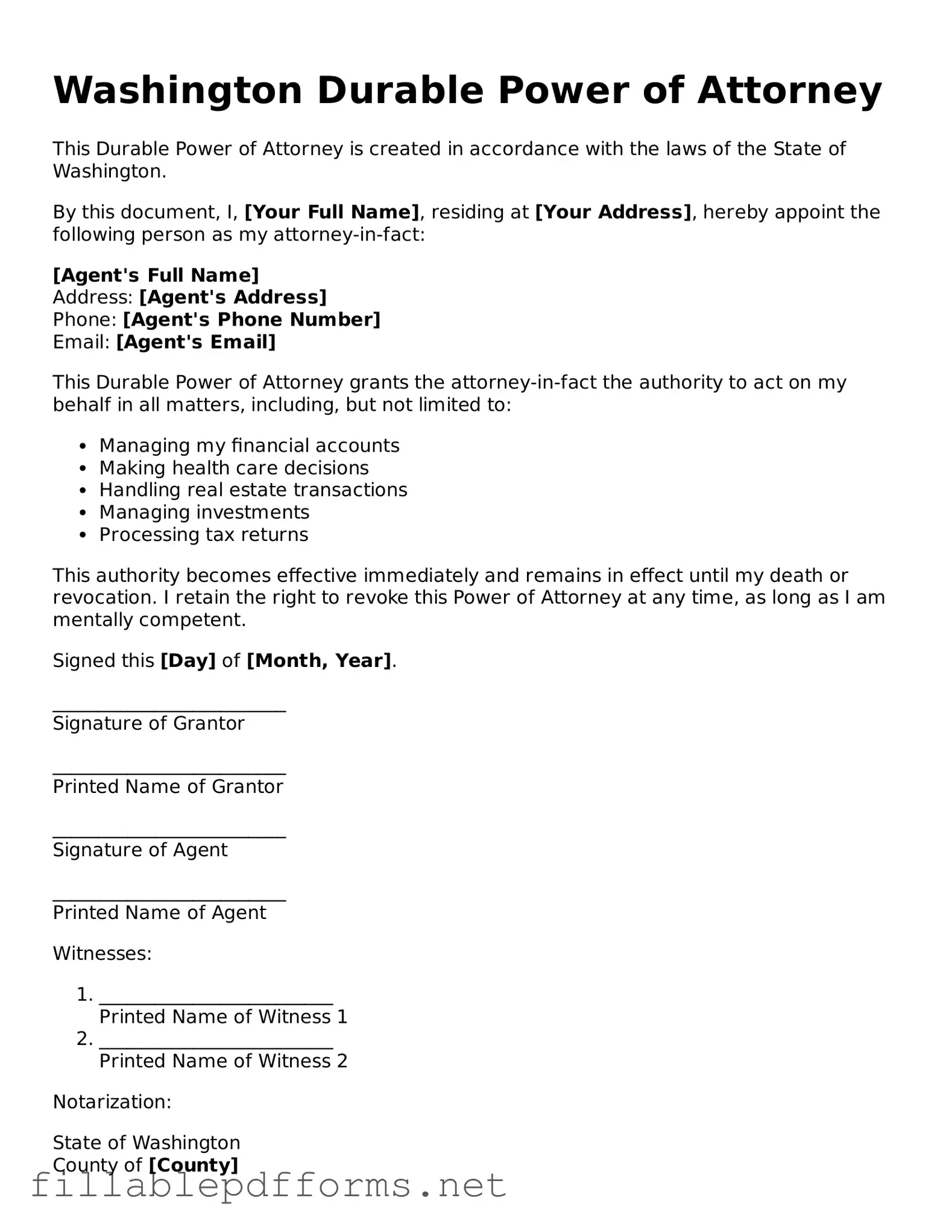Attorney-Verified Durable Power of Attorney Form for Washington State
A Washington Durable Power of Attorney form is a legal document that allows an individual, known as the principal, to designate another person, called the agent, to make financial and legal decisions on their behalf. This form remains effective even if the principal becomes incapacitated, ensuring that their affairs can be managed without interruption. Understanding its significance and how to properly execute it is essential for effective estate planning in Washington.
Launch Editor Here

Attorney-Verified Durable Power of Attorney Form for Washington State
Launch Editor Here

Launch Editor Here
or
▼ Durable Power of Attorney PDF
Almost there — finish the form
Complete Durable Power of Attorney online fast — no printing, no scanning.